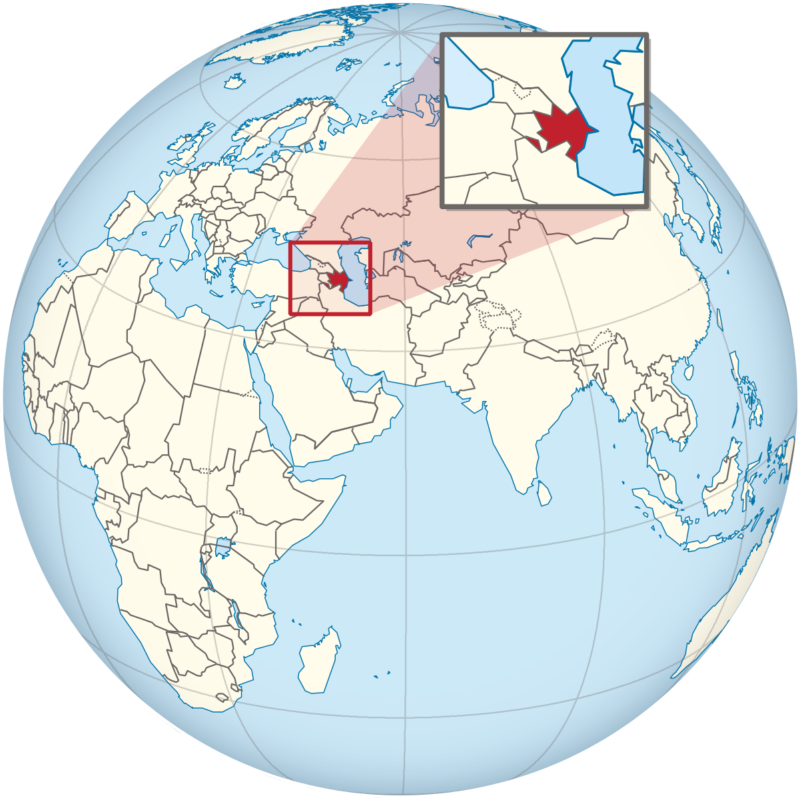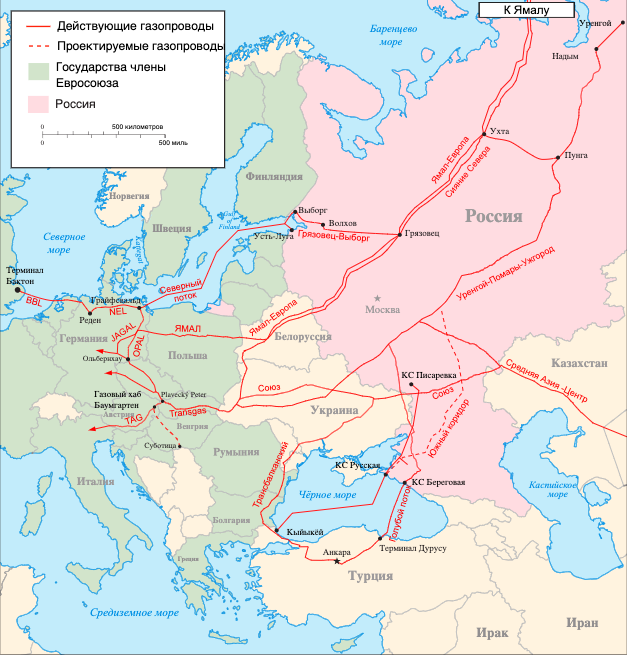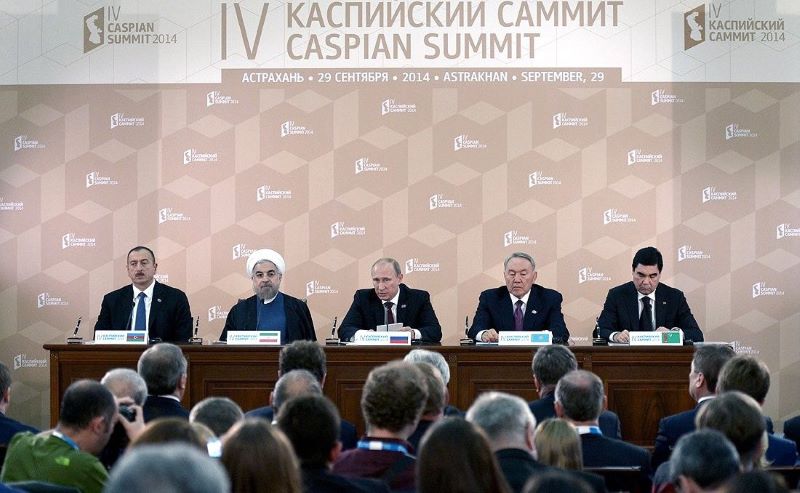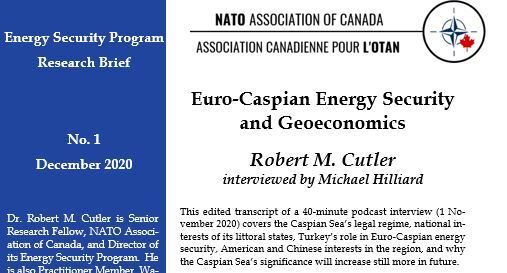Momentum accelerated over the past month pointing towards the implementation, sooner rather than later, of the Trans-Caspian Gas Pipeline (TCGP).
Already last summer the signature of the Convention on the Legal Status of the Caspian Sea established that neither Russia nor Iran would be able to block the construction of the pipeline. This even confirms the evolution of the geopolitical situation in the region over the last 10 years.
That signature was part of a diplomatic dance that has been underway for the past year. At the end of March 2018, German chancellor Angela Merkel visited the South Caucasus. During that visit, German officials expressed clear interest in the expansion of the gas transmission network called the Southern Gas Corridor (SGC).
Then, embarrassing all skeptics, the five littoral states successfully completed negotiations on the Caspian Convention and signed it in August 2018. Russian, Azerbaijani and other involved diplomats had said things would happen this way since a year earlier. Soon after, at the beginning of October 2018, came the first explicit official statement by the German foreign ministry, that the country sought to include gas from Turkmenistan into its strategic plan for their security of energy supply. A month later, Turkmenistani officials visited Brussels to follow up.
Then on February 20th of this year, the Fifth Ministerial Meeting, in Baku, of the Southern Gas Corridor Advisory Committee adopted the anticipated declaration that endorsed diversification of sources of natural gas for the SGC. “Diversification” in this context can signify no country other than Turkmenistan.
The U.S. State Department representative at the meeting in Baku stated for the first time that the United States “understands that the Southern Gas Corridor was designed to be expanded so that Central Asia can help deliver larger volumes of gas from the Caspian Sea basin to Europe.” Again, this can only signify Turkmenistan.
In addition, the high-ranking energy advisor to Turkmenistan’s President Gurbanguly Berdimuhamedov was quoted in the press to the effect that the TCGP that could make a contribution to East European energy security of the East European countries, and that Turkmenistan confirmed its readiness to play such a role.
The European Commission official handling the SGC at the moment, Gunther Oettinger (a former European Commissioner for Energy), said that the EU was very happy at the outcome of the Advisory Committee meetings. The EU wanted gas from Turkmenistan, he continued, and it was up to Turkmenistan to take the next step. Only days after this, Turkmenistani officials returned to Brussels to continue the discussions begun in autumn of last year.
Then in the first week of March this year, in a widely reported speech in Turkmenistan, Berdimuhamedov made the statement for which everyone was waiting. Speaking of the TCGP, he said, Turkmenistan wished to implement the project, which is “one of [the country’s] current objectives,” so as to provide for the entry of Turkmenistani gas “into the markets of Western Europe.” This is the first time that he had specified “Western Europe” rather than just Europe in general. “Western Europe” here cannot mean anything other than, in the first instance, Italy via the SGC.
From Russia’s perspective, blocking the TCGP pipeline has become less important in recent years. Setting into order a general security regime for the Caspian Sea basin became more important. Thus the new Convention rules out, in Russia’s interest, the possibility that military vessels from non-littoral countries may sail in the Caspian Sea. It is now well known that according to the Convention all littoral countries have the right to lay pipelines and cables on the sea-bed in their national sectors.
This shift by Russia isolated Iran. The latter’s consent was obtained via “side deals.” Turkmenistan and Iran reached agreements favourable to Tehran about cooperation in oil and gas exploration; so did Azerbaijan and Iran; and Russia agreed to construct drilling rigs in Astrakhan and float them over the Caspian Sea into the Iranian sector. This is necessary, because the southern sector of the Caspian Sea is quite deep, and Iran does not have the technology to drill it. All these promises convinced Tehran to sign.
A joint study by the World Bank and the European Commission several years ago gave the TCGP an environmental green light. This already puts the pipeline also into conformance with the conditions of the Tehran Convention (Framework Convention for the Protection of the Marine Environment of the Caspian Sea), signed in 2003 and which entered into force 2006, and its Aktau Protocol on combating pollution incidents. It is not a coincidence that this Protocol entered into force in July 2016, as the Caspian Convention itself was in the final stages of preparation.
Article 15 of the new Moscow Protocol to the Tehran Convention further calls into effect the latter’s Article 30, which provides that parties will resolve disagreements by way of consultations, negotiations or “any other peaceful means of their own choice.” There is no obligatory international court of any kind involved here, as some uninformed commentaries suggested prior to the August 2018 signing of the Caspian Convention.
Such agreements are to be reached, not among all five parties, but only between those parties involved bilaterally in the particular matter. Consequently, there is no way to block or delay (for more than six months) a prospective TCGP on environmental grounds.
Those who insist on remaining skeptical have the obligation to answer the question: If Russia had been so successful in blocking the TCGP for 20 years without the Caspian Convention, then why was it the driving force towards the agreement on the Convention, which makes it easier to build the pipeline by eliminating all uncertainty about its necessary (and easy-to-satisfy) conditions?
Photo: “Location of Azerbaijan on the globe” (September 25, 2012) by TUBS via Wikimedia Commons. Licensed under CC BY-SA 3.0.
Disclaimer: Any views or opinions expressed in articles are solely those of the authors and do not necessarily represent the views of the NATO Association of Canada.




